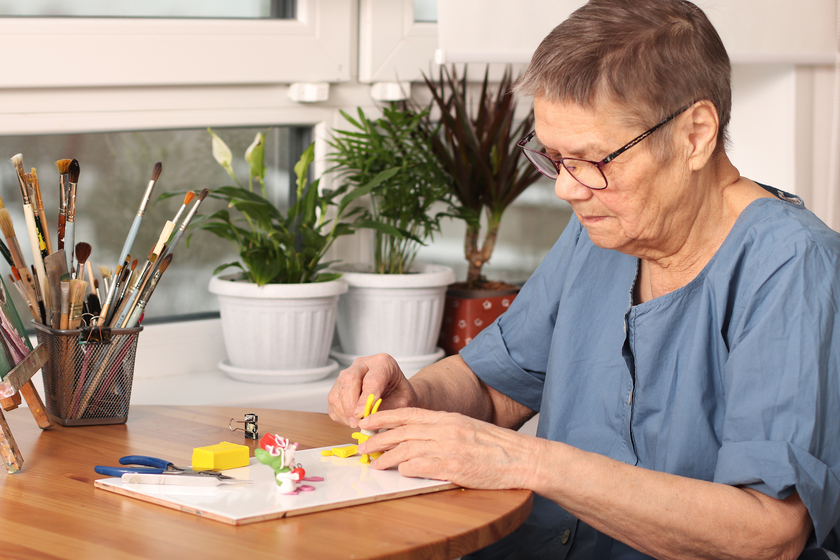The Perks of Choosing Boutique Memory Care for Loved Ones
The Perks of Choosing Boutique Memory Care for Loved Ones
Blog Article
All Concerning Memory Care Solutions: Why Tiny Memory Treatment Houses Are a Terrific Choice
Memory care solutions play a crucial function in sustaining people with Alzheimer's and dementia. Little memory care homes attract attention for their personalized approach and intimate setting. With reduced staff-to-resident proportions, these homes foster stronger connections and customized treatment. Residents benefit from boosted social communications and a secure environment. As households explore options, understanding the one-of-a-kind benefits of tiny memory care homes ends up being crucial. What factors should be thought about when selecting the best home?
Recognizing Memory Care Provider
While several might recognize with general senior care choices, recognizing memory care solutions is vital for families encountering the challenges of cognitive decrease. Memory care specifically provides to individuals with problems such as Alzheimer's illness and other kinds of mental deterioration. These services give an organized atmosphere that concentrates on improving the lifestyle for homeowners via specialized treatment and support.Memory care centers are created to ensure safety and security and security, typically featuring secured settings to stop wandering. Educated employee are available around the clock to help with everyday activities, drug administration, and individual care. Additionally, memory treatment programs often include cognitive excitement activities, tailored to engage locals and promote mental wellness. Family members can take advantage of recognizing these solutions, as they enable educated choices concerning their liked ones' treatment, guaranteeing that their details requirements and choices are resolved in a compassionate and helpful fashion.
The Benefits of Tiny Memory Treatment Houses
Small memory treatment homes offer distinctive benefits that can considerably boost the lifestyle for residents with cognitive impairments. One significant advantage is the intimate atmosphere, which permits tailored interactions among staff and residents. This smaller setup promotes significant partnerships, lowering feelings of isolation and stress and anxiety commonly experienced by individuals with memory issues.Additionally, the lower staff-to-resident proportion in little memory treatment homes enables caretakers to supply more conscientious guidance and assistance. This method not only improves safety however likewise advertises a feeling of safety and security for the residents.Moreover, tiny memory care homes can adjust promptly to the special needs and preferences of each local, permitting for a more homey atmosphere. Such an atmosphere can urge social engagement and participation in activities, ultimately improving the daily experiences of those coping with cognitive disabilities.
Personalized Care Program for Residents
Customized care plans are important in memory treatment homes, as they satisfy the special requirements and preferences of each homeowner. These strategies begin with thorough evaluations carried out by competent specialists, that examine cognitive capacities, case history, and individual rate of interests. This tailored method warranties that care is not just reliable yet likewise respectful of each individual's dignity and autonomy.Moreover, personalized treatment strategies are versatile, enabling modifications as locals' needs develop gradually. This adaptability promotes a feeling of safety and security and experience, which is crucial for individuals coping with memory difficulties. Caregivers are trained to implement these plans constantly, supplying assistance that straightens with the citizens' regimens and preferences.Ultimately, individualized treatment plans enhance the lifestyle for residents by advertising self-reliance, engagement, and health, making them a fundamental facet of memory care solutions in tiny memory treatment homes.
Producing a Home-Like Atmosphere
Creating a home-like atmosphere is critical for promoting comfort and experience in memory care setups, as it considerably affects homeowners' psychological wellness. Little memory treatment homes commonly focus on tailored touches, such as warm color palettes, family photos, and familiar furnishings plans, which aid homeowners really feel extra at convenience. Including elements evocative a conventional home, like comfy home and common locations, urges a sense of belonging.Moreover, using all-natural light and outdoor rooms can boost the atmosphere, promoting relaxation and peace. Staff members play a considerable function in preserving this atmosphere by involving with citizens in a thoughtful manner, treating them like family. Routine tasks, such as food preparation or horticulture, can also add to a home-like feel, supplying opportunities for residents to get involved in purposeful experiences. Overall, creating a supporting atmosphere supports cognitive function and psychological security, making it a vital element of memory treatment services.
Enhanced Social Communication and Neighborhood
Enhanced social communication and area are vital elements of memory treatment services. By fostering customized social engagement and creating a family-like environment, these solutions advertise significant links among citizens. Group events and tasks even more urge engagement, helping people really feel a lot more included and sustained.
Customized Social Engagement
While social communication is crucial for overall well-being, many people with memory disabilities usually have a hard time to engage meaningfully with others. Customized social engagement in memory treatment homes addresses this challenge by creating customized tasks that cater to residents' unique passions and capabilities. By focusing on specific preferences, caregivers can cultivate links that reverberate deeply with everyone. Tasks such as art treatment, music sessions, and directed conversations promote cognitive excitement and emotional expression. Additionally, little team setups urge sociability and enable for even more intimate communications, enhancing sensations of belonging. This strategy not just battles sensations of isolation but also encourages locals to maintain a sense of identification, eventually adding to boosted psychological health and high quality of life.
Family-like Environment
In a memory care setup, promoting a family-like ambience considerably boosts social communication and constructs a sense of area among residents. Smaller sized memory treatment homes usually prioritize intimate environments, allowing citizens to create closer connections with one another and employee. This nurturing environment advertises trust, which is important for people with memory problems. Homeowners are more probable to engage in discussions and share experiences, developing a helpful network that eases feelings of loneliness. The familiarity of common areas and regimens adds to a feeling of belonging, further encouraging social communication (personalized memory care). In such setups, emotional bonds grow, bring about enhanced total wellness and a better of life for locals as they browse their daily experiences together
Team Activities and Events

Security and Protection Attributes in Little Residences
Lots of tiny homes developed for memory treatment include essential safety and protection features to ensure the wellness of locals. These homes typically utilize safe and secure entrance and exit indicate protect against roaming, a common problem amongst individuals with memory problems. Furthermore, surveillance systems and alarm system mechanisms boost tracking, ensuring that personnel can quickly react to any type of uncommon activities.Interior layouts are customized for security, with minimized threats such as sharp corners and clutter-free pathways. Handrails and non-slip floor covering are typically mounted to minimize the danger of falls. Team participants are learnt emergency procedures, ensuring they are prepared for numerous situations.Moreover, customized treatment strategies might include analysis of specific security requirements, supplying tailored remedies for every resident. In general, these security and protection attributes develop a caring environment where locals can prosper while preserving their self-respect and independence.
Exactly how to Choose the Right Memory Care Home
Just how can households guarantee they pick the most appropriate memory treatment home for their enjoyed ones? The decision requires cautious factor to consider of numerous factors. Families should review the facility's team certifications and training, making certain that caregivers are experienced in taking care of memory-related conditions. Next off, it's essential to assess the home's atmosphere, concentrating on security attributes and whether it fosters a sense of community and belonging. click for more info Checking out the center can offer understanding into daily activities and the social atmosphere, which are necessary for psychological stimulation and emotional well-being. Additionally, family members must ask about the treatment strategies used, guaranteeing they are customized to specific demands. Finally, thinking about the home's place and availability for family members visits can contribute to a smoother change. By dealing with these aspects, family members can make an educated choice that prioritizes their loved one's convenience and lifestyle in a memory care setup.
Frequently Asked Inquiries
What Certifications Should Staff Members in Memory Care Homes Have?
Employee in memory treatment homes must possess pertinent certifications, experience in mental deterioration care, strong communication skills, and concern. Continuous training in behavior management and healing interventions improves their ability to sustain locals effectively.
Just How Do Memory Care Solutions Differ From Typical Assisted Living?
Memory care solutions focus specifically on people with memory problems, offering specialized assistance and organized atmospheres. In comparison, standard assisted living provides basic aid with everyday activities, doing not have the customized strategy necessary for those with cognitive difficulties.
What Kinds of Activities Are Used in Memory Care Houses?
Memory care homes commonly provide a selection of tasks developed to engage citizens. Usual alternatives include art treatment, music sessions, cognitive games, workouts, horticulture, and gatherings, all targeted at enhancing well-being and cognitive feature.
Can Locals Bring Their Own Belongings to Memory Care Houses?
Citizens can typically bring their own items to memory care homes, permitting them to customize their space - personalized memory care. This technique aids produce a familiar atmosphere, promoting comfort and a feeling of identification for the people

Just How Are Relative Associated With the Treatment Refine?
Family members play a necessary function in the treatment procedure, usually joining decision-making, attending treatment meetings, and supplying emotional assistance. Their participation cultivates a collective environment, improving the resident's general health and quality of life. While lots of might be familiar with basic senior care choices, recognizing memory care services is necessary for family members dealing with the challenges of cognitive decline. These services provide an organized setting that focuses on enhancing the quality of life for homeowners through specialized care and support.Memory care facilities webpage are created to assure safety and security and security, typically including safeguarded settings to protect against straying. Individualized treatment plans are vital in memory care homes, as they cater to the one-of-a-kind requirements and preferences of each local. Staff participants in memory care homes ought to possess pertinent accreditations, experience in dementia care, solid communication skills, and concern. Memory treatment solutions focus specifically on people with memory problems, offering specific assistance and organized environments.
Report this page